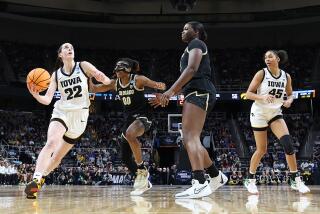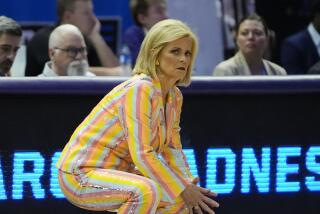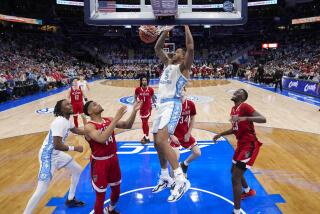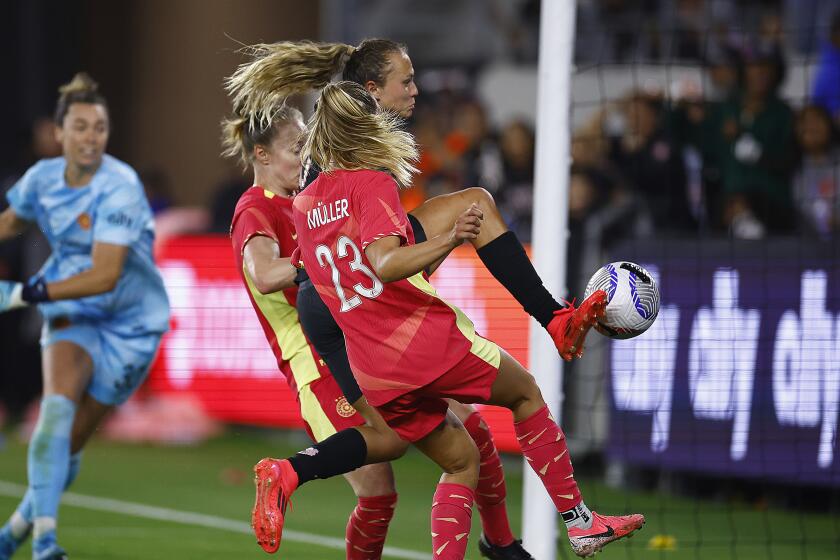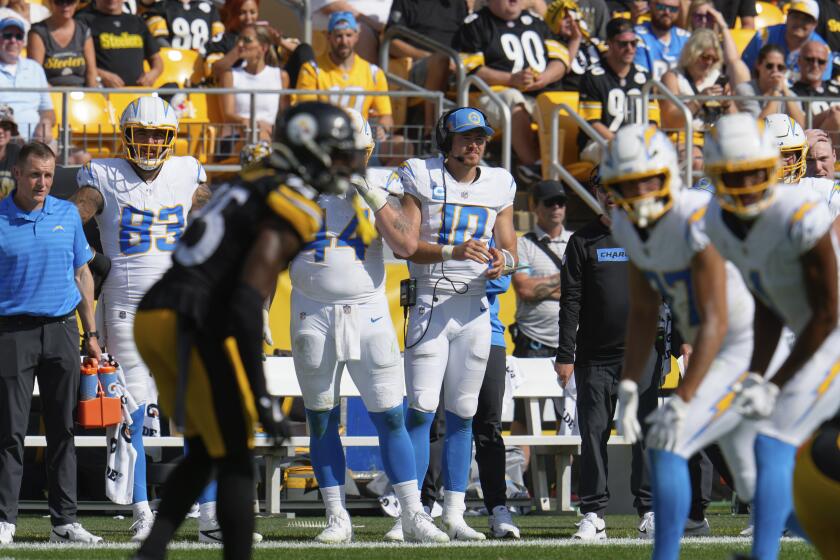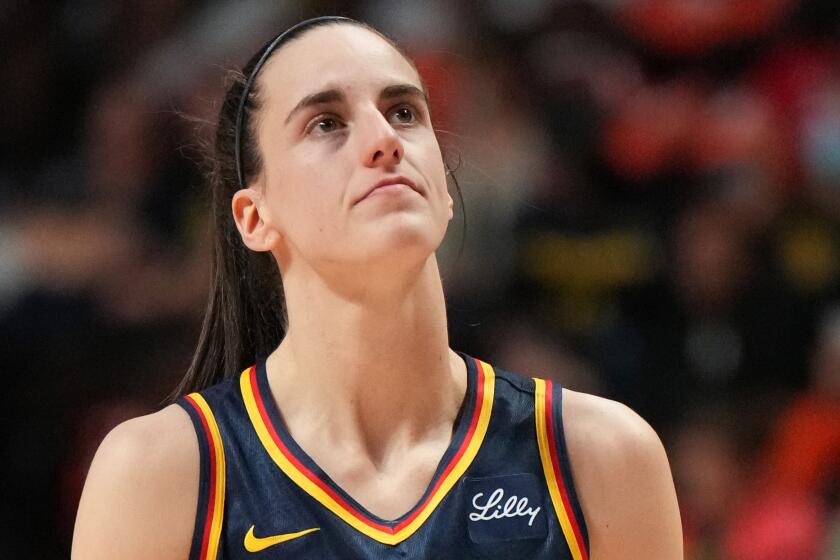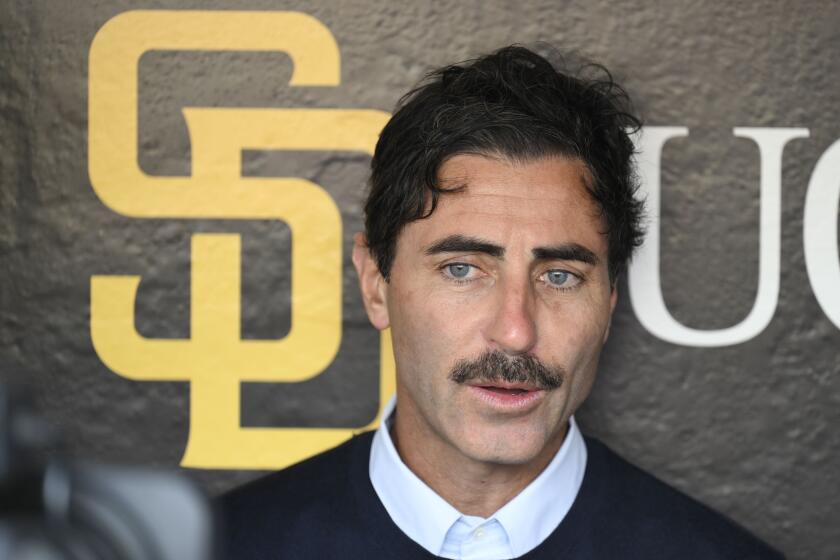College basketball scandal will do little to decrease interest in March Madness
When the NCAA selection committee hunkered down last weekend to make sense of March Madness, choosing 68 teams for the men’s basketball tournament, its members considered a wealth of information.
RPI rankings and strength of schedule figured into their debate. So did injuries, road records and head-to-head results.
They insist that one thing did not matter: the scandal enveloping the sport with coaches, agents and others accused of funneling cash to recruits and players.
When asked about this shadow looming over the tournament, committee chairman Bruce Rasmussen acknowledged the “issues with men’s basketball at this time,” then pivoted as deftly as any big man in the key.
“But there are a lot of great things that are happening,” he said, adding: “I would prefer to focus on those.”
If it seemed like Rasmussen was skirting the subject, he probably wasn’t the only one. Not even close.
Marketing and behavior experts predict that millions of college basketball fans will similarly look past the negative headlines when first-round play begins on Thursday.
“Fans are great at rationalizing,” said Annemarie Farrell, who studies sports consumer behavior at Ithaca College in New York. “We’re good at being able to create narratives that allow our heroes to remain heroes.”
The NCAA tournament has always been about story lines, and this year has plenty of them.
Top-seeded Virginia will appeal to traditionalists who favor smothering defense while, on the opposite end of the spectrum, Villanova leads the nation in scoring with its brand of small ball.
The West Coast has a contender in remodeled Gonzaga, and the heartland has a red-hot Michigan squad that won nine consecutive games on the way to a Big Ten tournament championship.
“We shouldn’t be painted in a bad light because of a few bad apples,” said coach Ed Cooley, whose Providence team is a No. 10 seed in the West. “Don’t let those few bad apples destroy the bunch of goodness in this game.”
College basketball’s troubles began in late September when prosecutors leveled the first charges in a fraud investigation they say dates to 2015.
Among the 10 names listed in initial FBI complaints were financial advisors, shoe company representatives and four assistant coaches, including Tony Bland of USC, Emanuel Richardson of Arizona and Lamont Evans of Oklahoma State.
ESPN cited unnamed sources in reporting that the FBI intercepted telephone conversations between Arizona coach Sean Miller and a would-be agent as they discussed a $100,000 payment to star Deandre Ayton.
Ayton has denied any wrongdoing, Miller called the report “inaccurate, false and defamatory” and the university stated that an initial investigation found no evidence of NCAA violations.
“I now intend to turn my focus to basketball and our players and this team,” Miller said earlier this month.
There has been some speculation that — despite Rasmussen’s comments — his selection committee was influenced by the federal investigation.
In the wake of charges against Bland and subsequent allegations involving USC players Chimezie Metu and Bennie Boatwright, the Trojans were passed over despite a No. 34 RPI ranking.
The same thing happened to other schools touched by scandal, including Louisville and long-shot Oklahoma State. And when the brackets were announced Sunday, Pac-12 champion Arizona was handed a No. 4 seed in the South.
“How did they drop to a four?” Kentucky coach John Calipari asked. “Didn’t they win their tournament?”
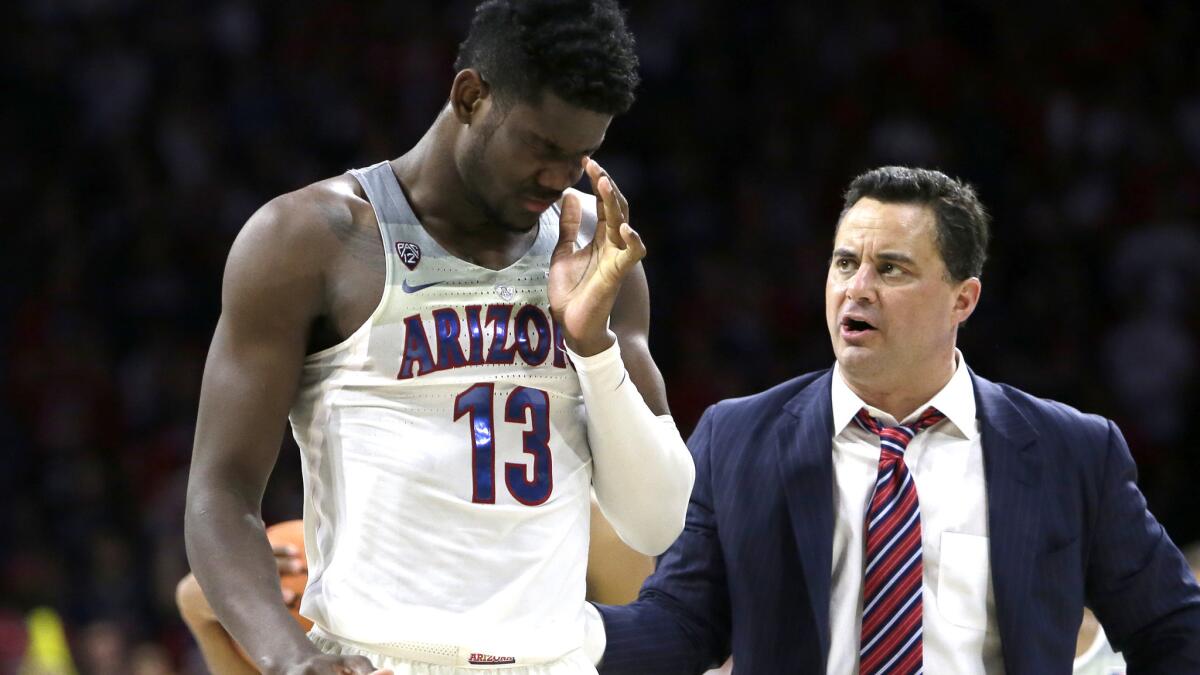
Fans might be inured to such controversy for several reasons, starting with college basketball’s history.
They have seen players caught receiving illicit payments and schools sanctioned for academic fraud. They have read about point-shaving scandals dating to the 1950s.
“Are people aware that there are problems?” asked Daniel Wann, a psychology professor at Murray State in Kentucky. “Most of them are. Most of them are going to say, ‘Yeah, that’s going on … but when does the tournament start?’”
Sports provide an escape that doesn’t always leave room for real-world failings or complications. Some fans feel a powerful sense of nostalgia for the school they attended or the teams they loved as kids.
“Sport is unique in that way,” Farrell of Ithaca College said. “How I feel on a Monday might be based on how my Buffalo Bills do. Why would any logical person attach their emotional well-being to the Buffalo Bills?”
Or to March Madness underdogs such as Lipscomb, Bucknell or Iona. Cinderella teams are part of the tournament’s appeal, as are the office pools that have become a rite of spring.
Given the estimated millions of people who toss in a few dollars — or more — for a chance to fill out their brackets, it becomes harder to imagine viewers turning away unless a string of powerhouse teams or marquee players are banned at the last second.
Experts don’t see that happening, not with CBS Sports and Turner paying $8.8 billion for broadcast rights through 2032.
NCAA leaders “want those players to play,” said Jim Lackritz, an emeritus sports business professor at San Diego State. “They want all those eyeballs.”
If anything, this winter’s negative press brings to mind a quote often attributed to legendary showman P.T. Barnum: “There’s no such thing as bad publicity.”
Experts wonder if negative headlines might have created yet another story line for this year’s tournament, something a little extra to attract viewers.
As Lackritz put it: “Are people going to tune in to see the corrupt teams lose?”
More to Read
Go beyond the scoreboard
Get the latest on L.A.'s teams in the daily Sports Report newsletter.
You may occasionally receive promotional content from the Los Angeles Times.

